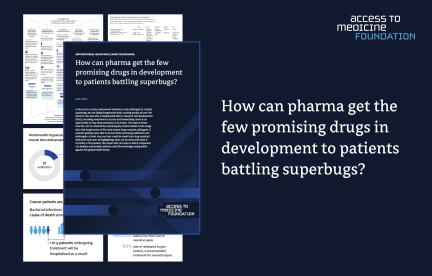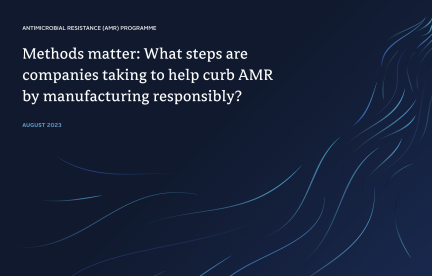Faced with fewer superbug-beating drugs, how can pharma get more promising medicines to patients?
A few weeks ago, I felt a sense of relief when I picked up amoxicillin from my local pharmacy for one of my children who was ill. As a trained pharmacist living in a high-income country, I could not have imagined having this feeling some years ago. Being able to fill an amoxicillin prescription was a non-event – and something you would take for granted. Firstly, with so many manufacturers of amoxicillin, availability of this essential antibiotic was not something that was considered an issue just a few years ago. Secondly, I am lucky enough to live in a country where drug shortages were not commonplace; access to the latest innovative medicine or generic drug is not something I have had to worry about for most of my life – as a pharmacist, patient, or parent.
The reality is that today, drug shortages are increasing worldwide while antimicrobial resistance (AMR) is spreading at devastating rates. What makes this current situation even more alarming is that more and more patients around the world are now battling drug-resistant infections or ‘superbugs’, many of which can no longer be treated with existing medicines like amoxicillin, for example
Fortunately, I was still able to access the paediatric formulation of amoxicillin for my child’s infection. For people living in low- and middle-income countries (LMICs), where on top of drug shortages, the burden of drug-resistant infections is disproportionately high, that sense of relief never arrives. In many LMICs, existing treatments remain out of reach – let alone newer treatments that are effective against the most severe drug-resistant infections.
Read the full op-ed on the Pharma Boardroom website.


